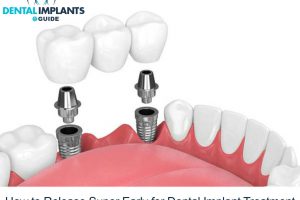Do patients get sedated for dental implant surgery?
Do patients get sedated for dental implant surgery?
If you’re considering dental implant surgery to replace a missing or damaged tooth, you may be wondering if anesthesia is needed and, if so, how much anesthesia will be used. The risk of pain may be a source of great fear for those who have phobias of surgery or even just dental The risk of pain may be a source of great fear for those who have phobias of surgery or even just dental appointments.
High Quality Dental Implants Affordable Prices FREE Consultation

Since dental implants are an oral surgery operation, you will be given some sort of anesthesia to keep you relaxed during the procedure. While you will be completely unconscious during the operation regardless of the form of anesthetic used, some dental offices, such as Dental Implants Brisbane, provide various types of anesthesia that will make you unconscious for the duration of the procedure. Being totally unconscious, on the other hand, is not usually needed for dental implants and can result in additional risks and costs.
The form of anesthesia you’ll get is decided by the number of implants you’re receiving, your dentist’s or oral surgeon’s choice, and your own level of comfort.

Determining the type of anesthetic
If you’re just getting one or two implants, you’ll most likely be fine with only a local anesthetic. If you don’t have enough healthy jawbone tissue to accommodate an implant, you may need to have a bone graft operation. Bone tissue is harvested from other parts of the body and transplanted into your jaw to bind with it and sustain your implant. If this is the case, your oral surgeon may prefer to operate with you when you are unconscious under a general anesthetic.
Conscious sedation is another method for sedation during dental implant surgery. This procedure, which is often combined with the use of a local anesthetic, helps you relax during your oral surgery. The sedative is typically given as a pill or in the form of nitrous oxide gas. With conscious sedation, you will be fully aware of your surroundings and will be able to respond to your doctor’s questions and orders while being totally comfortable during the procedure. For those who are afraid of dental operations, conscious sedation is a great choice.
While it might seem that having the procedure done under general anesthesia is better, it is usually unnecessary and comes with complications as well as a longer recovery period. Local anesthesia is less likely to cause adverse side effects and is thus better. Be sure to discuss your sedation and anesthesia options with your oral surgeon so that he or she can assist you in making the best choice for you.
Dental implant surgery pain scale
On a scale of one to ten, with one indicating mild discomfort and ten indicating excruciating pain. In the first 24 to 48 hours after receiving a dental implant, a patient with strong bones who does not need extensive soft tissue surgery will experience pain levels between 2 and 3, indicating that over-the-counter pain relievers such as Tylenol or Advil will suffice.
The discomfort that patients experience after a dental implant operation is not caused by the hole in the bone or the implant placement. The soft tissue manipulation that occurs during the operation is typically the cause of the discomfort.
As a result, dental implants that do not require gum tissue lifting are actually painless, with patients reporting pain levels of 1 to 2 after the operation. The pain level is 3 or 4 for the first night after a small flap of gum tissue is lifted, and then it subsides.
If the operation involves bone grafting, the pain level is higher, and patients experience a 5 or 6 in terms of pain for the first three days following the procedure, necessitating the use of a powerful pain reliever. The pain lasts one to three days and then goes away, regardless of how much gum tissue is lifted or whether grafting is necessary.
The patient’s pain tolerance is also a factor in the amount of pain they feel. Some people can withstand more pain than others, but even if two people undergo the same procedure, their pain levels can vary.
(Discuss your dental situation with us)
After the dental implant procedure
Patients will have trouble consuming normal foods following the operation while their gums recover, so they will need to consume soft foods for a while. To prevent implant failure and other complications, the patient may need to avoid caffeine and tobacco products. Patients would be expected to see the dentist on a regular basis. This will ensure that they recover well and that no complications occur as a result of the operation.

Conclusion
Depending on how good the gums are, dental implant surgery may be painful. If you want to learn more about how unpleasant the operation will be, speak with your dentist and have them inspect your gums to decide how much work needs to be performed during the procedure and whether you will need sedation.
References:
Jörg Neugebauer, Gerhard Stachulla, Lutz Ritter, Timo Dreiseidler, Robert A Mischkowski, Erwin Keeve, Joachim E Zöller. (2010) Computer-aided manufacturing technologies for guided implant placement. Expert Review of Medical Devices 7:1, pages 113-129.
C. Xiaojun, L. Yanping, W. Yiqun, W. Chengtao. (2007) Computer-aided oral implantology: methods and applications. Journal of Medical Engineering & Technology 31:6, pages 459-467.
Olivier Schneider, Jocelyne Troccaz. (2001) A Six-Degree-of-Freedom Passive Arm with Dynamic Constraints (PADyC) for Cardiac Surgery Application: Preliminary Experiments. Computer Aided Surgery 6:6, pages 340-351.









